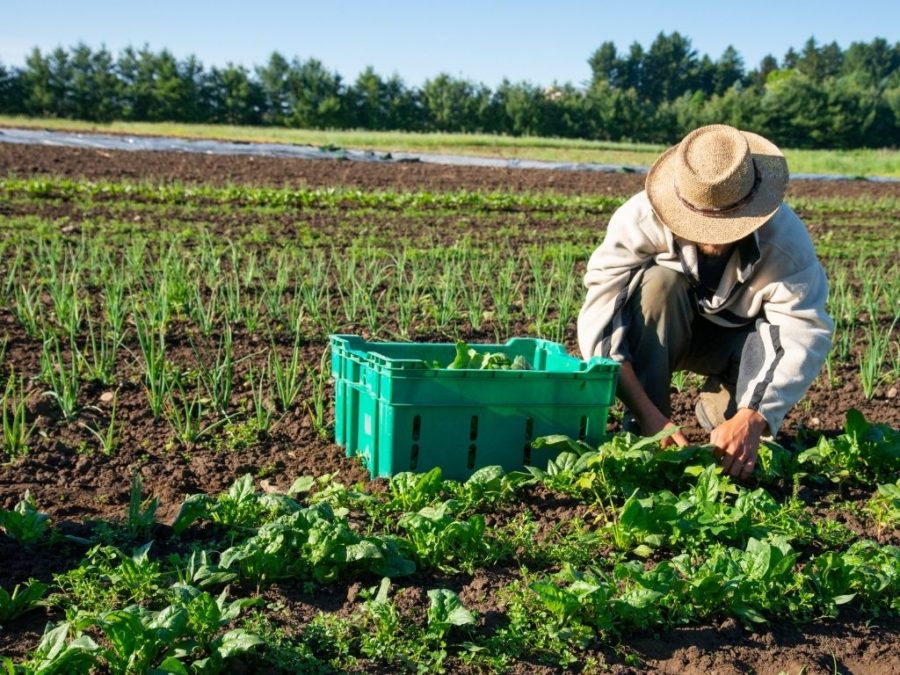
By the year 2050, the human population will be nearly 10 billion, which means we will need to double the amount of food we produce. To meet the global demand for food, it is important to manage our resources carefully and intensify farming practices to maximise crop yields. However, traditional farming practices are harmful to the environment but there might be an alternative. We explore what organic farming is and if it really is better.
—
From the massive quantities of fertilisers and pesticides we use on crops to the way we treat cattle by keeping animals in densely packed pens to maximise milk and egg production, our modern farming practices are extremely harmful to the environment. These conventional farming methods pollute our atmosphere and waters: agriculture is responsible for nearly 10 billion tons of carbon dioxide emissions globally! But they are also extremely dangerous for human health. Fortunately, we are increasingly aware of the dangers of fertilizers and other toxic chemicals that humans use extensively in modern agriculture and we are opening up to the idea of buying food that is organically produced, even at a higher price.
What is Organic Farming?
Organic farming is a method of farming where, instead of chemical fertilisers, natural waste is used to nourish the soil. Organic foods are produced in more environmentally friendly ways that benefit the environment instead of harming it. These natural methods elevate the quality of soil and reduce energy use, carbon emissions, and pollution.
Australia has over 22.7 million hectares, the highest amount of organically farmed land worldwide! Farmers here are using robots to make growing crops easier. They use drones that communicate with satellites to collect data while soaring over a field. They are able to identify, for example, which parts of the field need more water, making sure that farmers water only areas in the field that need it the most.
Is Organic Farming Really That Good?
However, organic farming methods are not perfect. In general, organic crops are lless efficient in terms of output compared to conventional ones because pesticides are not used. For example, one liter of organic milk requires 80% more land to be produced than the same quantity of conventional milk! So, if we depend on organic farming for large crop production, we will need more land. Another problem is that, although organic farms do use less water per farm, some of the natural methods used may use more water per crop because of lower crop yields.
Organic farms are not necessarily better for the environment either. For example, they can produce up to twice as much methane emissions than regular farms. In better news, organic farms still use far less energy overall to produce crops.
Is Organic Farming the Solution?
Organic farming is generally better for the environment, but just like any other way of farming, it still comes with some challenges. As for now, we cannot rely exclusively on this method to meet the total global food demand, as its output is still too low. However, as technology advances, there is no doubt that the organic food market has a bright future ahead.
Check This Out Next: How Eating a Plant-Based Diet Can Help the Planet